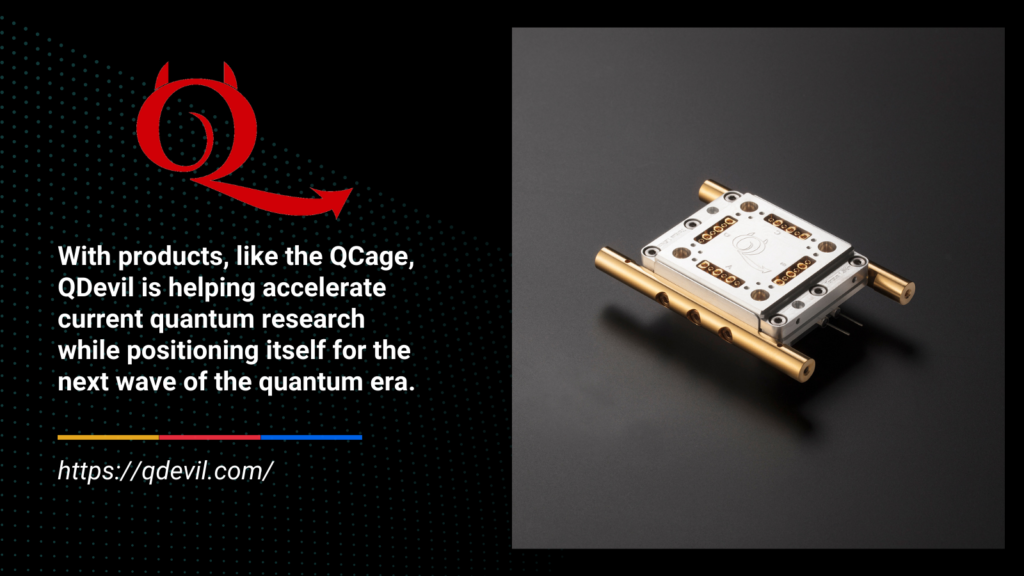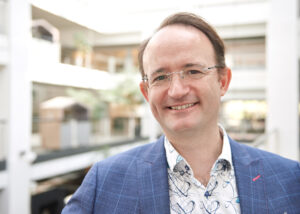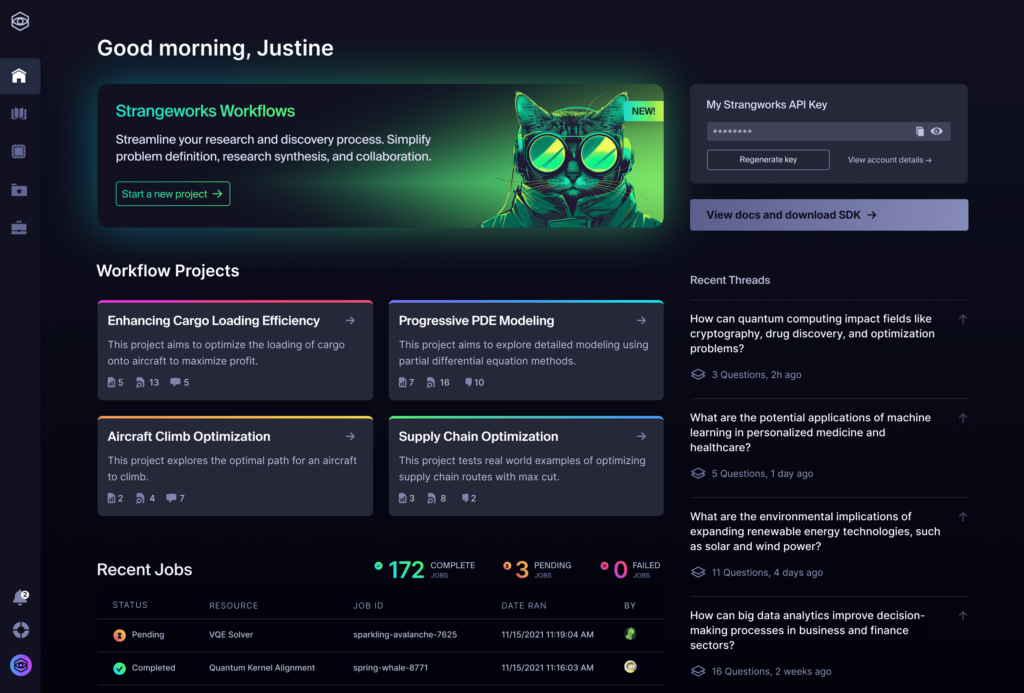
Copenhagen-based QDevil is developing products right now to accelerate quantum research while positioning itself to provide services and solutions for the emerging quantum industry, according to Jonatan Kutchinsky, CEO and co-founder of the company.
“The first step is that we want to be sure to be helpful to the researchers,” Kutchinsky said in an interview. “We are physicists. I’m a physicist. The company is run by physicists. It’s owned by physicists. So that’s really what this company is all about. It’s about helping the community.”
Helping that community is mainly about creating products that make better qubits, he added.
Officially, founded in May 2016, QDevil has produced products for that mission of developing and manufacturing auxiliary electronics and specialized components, operating from milli-Kelvin to room temperature. including its original product the QFilter, a compact high-performance low-pass filter.
It was the QFilter that re-ignited Kutchinsky’s interest in quantum and quantum information science, a subject he studied initially before opting to join a microfluidics startup.

As a consultant investigating the business potential of companies created at the University of Copenhagen, he became immediately attracted to the business idea that was developing cryogenic filters, which eventually became the QFilter.
“I quickly realized that the filtering of signals is an essential part of most quantum computer architectures,” said Kutchinsky. “So the idea was already validated, it worked. They had 16 dilution fridges at Copenhagen University where it was used every day.”

In the first year, the startup sold 22 QFilters. Other additions to the firm’s line of products soon followed, all aimed at helping quantum science teams create qubits that are better. In August, 2021, the company released QDAC-II, a second generation ultra-low noise high resolution 24-channel voltage source. QDevil just released the QCage, a new sample holder system, aimed at superconducting quantum processors with tens of qubits.
“The products we sell right now are focused on accelerating quantum research, making it easier and faster for people to develop quantum computers,” said Kutchinsky. “Most scientists, sciences or R&D groups that work with functional quantum computers, they don’t work with 50 qubits, they work with four qubits, for example, because the problem is not in making too many qubits, the problem is the fidelity. The errors pile up so quickly, so even if you build a chip with 200 qubits, it wouldn’t be useful at all, because they would lose their coherence faster than you could do the computations. So, all the fundamental problems in scaling up you can also work on that with four qubits by improving the fidelity or lengthening the coherence time of the qubits.”
Phase 2 of the Quantum Revolution
QDevil’s line of products fits a pressing need in the field of quantum research right now, and it’s a significant market. But, the team is also expecting the quantum research niche to scale to a full-size quantum industry. And QDevil is primed and ready to deliver solutions to this growing community, said Kutchinsky.
“There will be some point in the future when there is an inflection point,” said Kutchinsky. “At some point, quantum computers will start to be able to do something that’s not possible for normal computers, and where there may now be companies with 20- or 30-quantum computer setups, there will then be a server center full of quantum computers with 1000 or 10,000 quantum computers because there will be a demand for the computing services; or, other companies will sell quantum computers to companies that want them in their own server room because what they are working on is too secret.”
Kutchinsky offers a spectrum of time for when quantum computing will hit that inflection point.
“That inflection point that several people talk about may lie five years into the future, maybe three years,” he said. “However, it could also be another seven years or, worst case, 10 years into the future. But right now, all the activity is driven by research and development, basically. So QDevil’s mission right now is to accelerate that R&D in quantum computing research.”
Preparing for that inflection point means that the QDevil team is in close contact with the entrepreneurs and scientists creating the technology that is laying the groundwork for that emerging quantum industry. It is one of the reasons the company avoids using re-sellers, when possible, and, instead, sells and services directly to customers, which are the researchers investigating quantum science right now.
“The issue comes back to our mission and the first step of that mission is to be helpful to the researchers,” said Kutchinsky. “We can only do that by getting the feedback from them. And, secondly, we want to be in on this trend and these relationships will help us know when the rocket takes off and there will be a big increase in numbers of quantum computers. We can only do that by knowing what’s going on in the industry.”
Beyond building close relationships with its customers, QDevil is also well positioned with its partnerships across the quantum industry, from building relationships with commercial companies and startups to deepening connections with its academic partners and customers.
On the academic side, QDevil has forged ties with University College London and the University of Copenhagen’s Niels Bohr Institute. Quantum Motion Technologies is a key corporate partner.
All of these organizations have been an important part of the company’s growth and synthesis from the start, Kutchinsky pointed out.
Profound Progress, Expected Growth
Kutchinsky, who received his doctoral degree in physics in 2001, is excited about the progress that quantum computing has made. It is one of the reasons why he returned to the field. The past nearly decade-and-a-half of developments in the field has convinced him of quantum’s potential.
“There has been so much progress in these 14 years that I thought, okay, now things are really happening — maybe it’s actually possible to do this,” said Kutchinsky.
For Kutchinsky, being part of the effort to create a quantum computer means more than just the sheer satisfaction of chasing what might be the greatest business and scientific challenge of the 21st century. A quantum computer could also pave the way for significant benefits for humanity, he said.
“I think the most important one for me is the possible impact on pharmacology, such as developing new drugs,” said Kutchinsky. “It’s very, very difficult to simulate how drugs work. You need the biggest supercomputers to do it and, even then, it doesn’t work very well. Quantum computers have the potential to make it possible to simulate, almost infinitely better — how drugs work, how a small molecule interacts with a protein, for example, I think that’s clearly the biggest potential for me.”
Read about QDevil’s complete line of products designed to help quantum researchers and enable the quantum industry here.
If you found this article to be informative, you can explore more current quantum news here, exclusives, interviews, and podcasts.




















